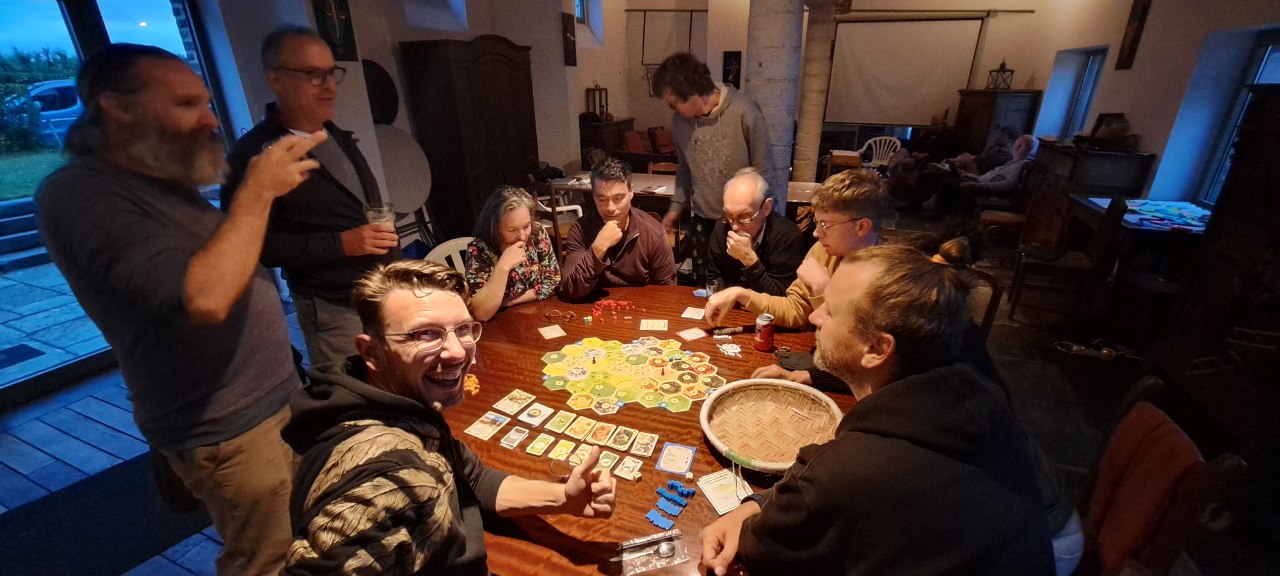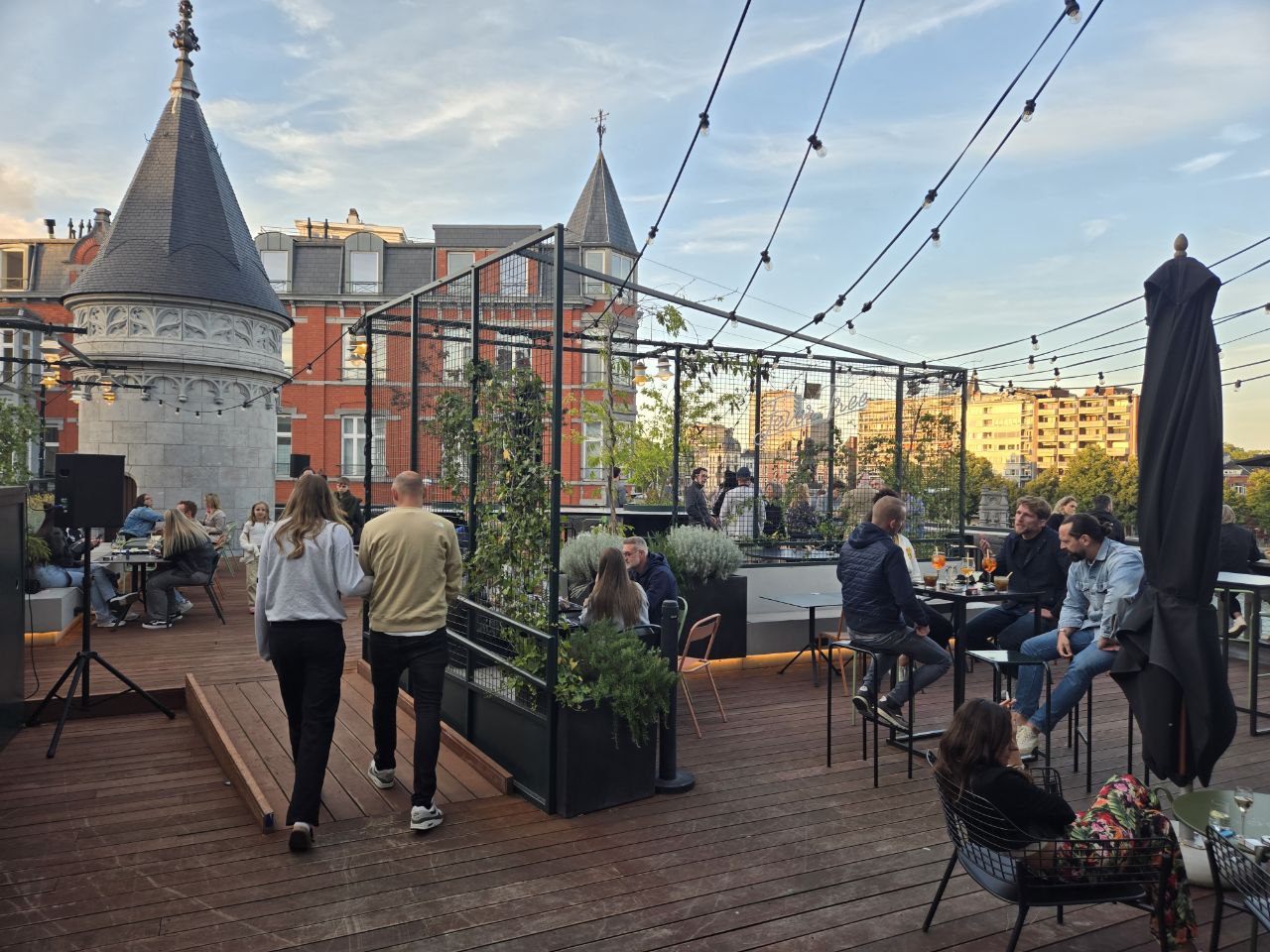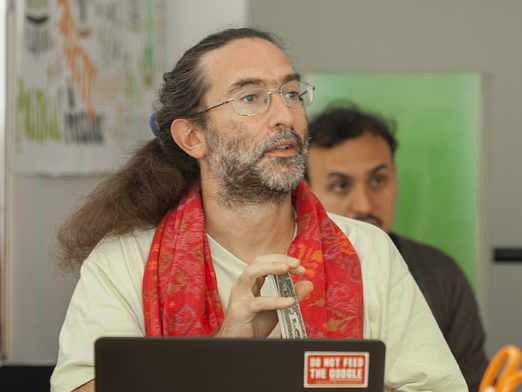
Collaborative Finance (CoFi) is an innovative financial approach that leverages trust networks, network sciences and credit systems to facilitate more efficient and human-centric financial relations. What is #CoFi
Collaborative Finance means that local actors govern and manage local financial infrastructure. That's why after last year's global gathering at the Commons Hub in Austria, this year we wanted to focus on a real place, and encourage networking and knowledge building there.
Thanks to our sponsors Informal Systems, One Project, LedgerLoops, Holo, Ethichub, and Breadchain.
Complementary currency veteran Stephen DeMeulenaere and I organised a 4-day retreat, to continue the more global dialogue that we initiated last year at the Commons Hub in Austria.
Some of the projects participating over the whole week were (my categorisation is slightly arbitrary):
Practitioners
- Hudson Valley Current (Generously financed community building initiative). USA
- Cheimgauer (The longest running local Euro voucher system) Germany
- Grassroots Economics (Helping Africans to issue their own accounting units) Kenya
- Bristol Pound Legacy (A high profile local Euro Voucher system) UK
- EthicHub (Low interest stablecoin loans to coffee farmers)
- Humans united in Mutual Aid Networks USA
- Monei Lab Brazil
- Muntuit, Belgium
- Island Power, UK
- JAK Bank (interest free mutual lending for housing) Sweden
Software
- Sikoba (A payment app using mesh credit)
- Mutual Credit Services (Designing & building a clearing system for Liverpool)
- Informal Systems (Clearing networks on a blockchain)
- Holo (Platform for building distributed web applications)
- LedgerLoops (Decentralised mesh clearing application)
- STRO (Social Trade Organisation, open source banking software)
Academics and authors
- RAMICS (Research Association on Monetary Innovation and Community and Complementary Currency Systems)
- ECSA (Economic Space Agency, author ofProtocols for PostCapitalist Expression
- Lund University
- several individuals
Adjacent fields
- Ecoloc (Commons building)
- Island Power (Designing self-financed power grids for islands)
- Baffrancou whose founder called me to Auroville in 2010.
- One Project (Foundation pursuing infrastructure for the next economy)
More than 50 people joined us in all, six continents were represented! There were over 30 people at the retreat, and most of them also continued on to Liege at the weekend!
The retreat
- In hope of being as productive and responsive as possible, we planned no sessions until after the first morning when we canvassed the attendees about what they wanted to talk about. Because many people knew each other, or had collaborated for years, we needed much less time for introductions and showcasing of projects. Aside from intro morning and closing morning, we had 5 precious half days for work. We polled for most popular talking points, and for 3 topics we invited someone to design and facilitate a plenary session with the people most engaged on that topic. Those big sessions often made use of some common liberating structures: world cafe and goldfish bowl. It was great to have so much time together on the big questions but on the final day people were relieved to do an open space to cover more niche topics. We also attempted to collaborate directly by matching offers and needs which seemed to be fruitful, but we'll find out next year!
- Aside from sessions we made plenty of free time and evening time for private conversations and secondary activities: A tour of the farm, a walk to the river, a documentary, experimental board gaming, even an experimental ritual.
- Formal and informal discussions ranged around community engagement, structures of credit, managing software projects, building software and interoperability. There were deeper discussions about monetary theory. There was a desire to speak a common language in our field where the meanings of words can be very plural.
- To keep the retreat costs down we invited participants to become 'chef' for a meal and everyone else to volunteer for one meal each and it was very efficient. Everyone slept in the same dormitory and it was very peaceful. We cleaned up on Thursday afternoon, and relocated, en masse, to Liege, and went to our respective accommodations.
Thanks to Giulio Quarta for very professional live documentation!
CoFi Liege
- Nicolas Franka booked the cafe of a small theatre which was cost effective, and had a perfect atmosphere for work and idle chat. Almost everyone who came had a chance to make a presentation. Over three days we heard from timebanks software startups, projects rich, poor, social technical, academic, practical and commercial. I believe this corner of Europe is perhaps the richest in complementary currency projects. Evenings we decamped to the less formal atmosphere of 'the Old Post Office'. One evening Paul Brinkkemper inventor of Money Maker board game dropped by to supervise a game, and even gave away a few sets!

Outputs
- Outputs are too many and too intangible to list, but I feel obliged to try.
- Firstly we are creating a space in which collaborations can happen, critical because in money systems the whole is inevitably greater than the sum of the parts.
- In my experience, relationships made slowly always bear the best fruit.
- We will propose a collaborative finance commons - for the community to organise and finance its own meetings.
- One participant was able to commit to volunteering for several projects!
- Many participants signed up to the Humans Marketplace for collaboration and support.
Were there outcomes for you? Let us know in the comments.
Drafted with support from co-organiser Stephen DeMeulenaere.

Comments